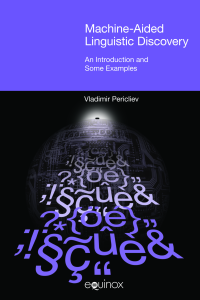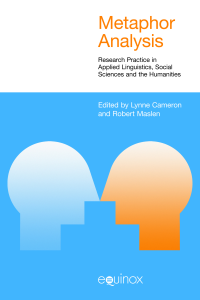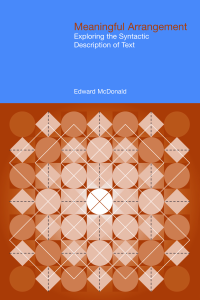Linguistics & Communication
-
Language, Interaction, and Frontotemporal Dementia
Andrea W Mates, Lisa Mikesell, Michael Sean Smith
In the past before improving technologies allowed for the direct observation of brain activity, brain damaged patients were a prime avenue for understanding language structure and inferring back to brain function. Now with the rapid developments in neuroscience, what we do know about the brain can i...
-
Machine-Aided Linguistic Discovery
Solving linguistic problems not infrequently is reduced to carrying out tasks that are computationally complex and therefore requires automation. In such situations, the difference between having and not having computational tools to handle the tasks is not a matter of economy of time and effort, bu...
-
Language, Cognition and Space
Spatial perception and cognition is fundamental to human abilities to navigate through space, identify and locate objects, and track entities in motion. Moreover, research findings in the last couple of decades reveal that many of the mechanisms humans employ to achieve this are largely innate, prov...
-
An Introduction to the Grammar of Old English
This book applies the techniques of systemic functional grammar to the description of the Old English historical dialect, 650-1150 CE. Systemic functional grammar is an approach to the description of language which distinguishes three separate functions in communication: language as representation,...
-
Metaphor Analysis
Metaphor is recognised as an important way of thinking, constructing analogies, and making connections between ideas, and an important way of using language to explain abstract ideas or to find indirect but powerful ways of conveying feelings. By investigating peoples use of metaphors, we can better...
-
The Western Classical Tradition in Linguistics
The Western Classical Tradition in linguistics extends from Ancient Greece to the 21st century and has spread from Europe to the other four inhabited continents. It is a story of successive stages of language study, each building upon, or reacting against, the preceding period. There is a theoretica...
-
Meaningful Arrangement
This book takes apart and problematises the whole process of identifying and explaining the patterning of words in sentences. It brings together two concepts - syntax and text - that are normally treated separately, and shows how they can best be understood in relation to each other. Part 1, Process...
-
Modeling Ungrammaticality in Optimality Theory
Modeling Ungrammaticality in Optimality Theory is a collection of papers in phonology and syntax on the topic of ineffability, or absolute ungrammaticality, and the analytical challenge which it presents for Optimality Theory. The architecture of Optimality Theory takes an input and maps it onto its...
-
Phonological Argumentation
This volume presents a series of original papers focusing on the theme of phonological argumentation, set within the framework of Optimality Theory. It contains two major sections: (1) chapters about the evidence for and methodology used in discovering the bases of phonological theory, i.e., how con...
-
The Semantics of English Negative Prefixes
The Semantics of English Negative Prefixes proposes a new system for describing the semantic properties of negative prefixes in English. Specifically, the system captures the semantic distinctions between pairs of negative words that share same bases but end in different prefixes like amoral vs. imm...










